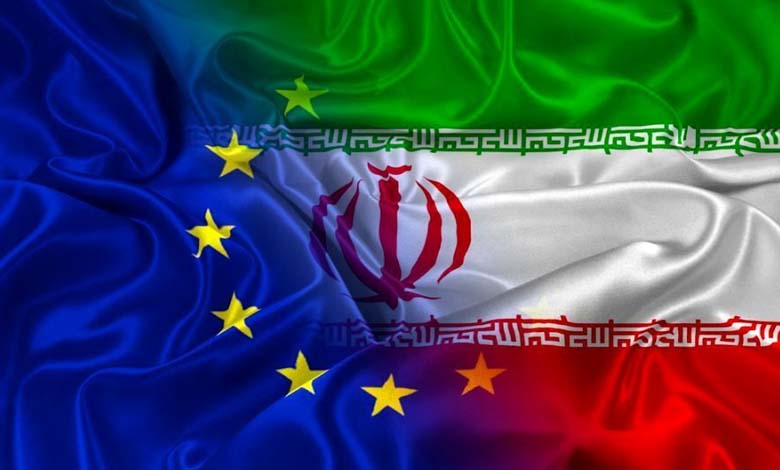Hours before sanctions… Iran protests against Europe’s snapback mechanism and recalls its ambassadors

On the eve of the reimposition of United Nations sanctions, Iran has recalled its ambassadors to Germany, France, and the United Kingdom for consultations, in protest against the European decision to reactivate the sanctions mechanism.
According to local media, Tehran summoned its envoys after London, Paris, and Berlin launched the so-called “snapback” procedure, which reinstates UN sanctions on Iran.
On Saturday, Iranian state television reported that “following the irresponsible move by the three European countries to reactivate annulled Security Council resolutions, Iran’s ambassadors to Germany, France, and the United Kingdom were recalled to Tehran for consultations.”
-
Iranian-European Talks on Nuclear Issue and Sanctions
-
Trump’s Return Pushes European Powers to Demand Increased Pressure on Iran
The return of sanctions
The reimposition of UN sanctions on Iran now appears inevitable after the Security Council rejected a proposal to delay the measure, despite the International Atomic Energy Agency (IAEA) resuming inspections of Iranian nuclear sites.
On Friday, in a last attempt, the Council voted on a draft resolution to extend the 2015 nuclear deal, known as the Joint Comprehensive Plan of Action (JCPOA), by six months until April 18, 2026. However, the draft—put forward by China and Russia—was rejected by nine out of fifteen members, supported by four, while two abstained.
-
New European sanctions against Iran and the Revolutionary Guard – Details
-
Persecution, sexual violence, and torture… European sanctions against the Taliban and the imprisonment of the Iranian Qarchak prison
Following the vote, UK ambassador to the UN, Barbara Woodward, confirmed that “UN sanctions targeting Iran’s nuclear proliferation will be reimposed by the end of this weekend.” Her French counterpart, Jérôme Bonnafont, lamented that “Iran has stubbornly refused to engage” and had not offered “any concrete and credible initiative.”
As a result, the Security Council is proceeding with the activation of the “snapback” mechanism, with sanctions expected to take effect by midnight on Saturday (GMT).
-
Iran imposes sanctions against the European Union and the United Kingdom.. Details
-
From ‘The Spider’s Den’… Iran Announces an Infiltration into Israel and Reveals a Treasure
Tehran calls decision “illegal”
Iran’s Foreign Minister, Abbas Araghchi, declared that the reimposition of UN sanctions over its nuclear program was “legally null and void.”
Speaking before the Security Council, he described the use of the snapback mechanism as “illegal, politically reckless, and procedurally flawed.” To reporters, he added: “Iran will never bow to pressure. We only respond to respect. The choice is clear: escalation or diplomacy.”
Russia’s deputy ambassador, Dmitry Polyanskiy, denounced the move as a “charade of lies and deceit,” adding, “This is not diplomacy.” Moscow has already indicated it will not enforce the sanctions.
-
Iran’s Nuclear Program Surpasses the Threshold of Military Resolution: Uranium at a Dangerous Level
-
Is Iraq Ready for the Collective Repatriation of Female Prisoners and Children Linked to ISIS?
No withdrawal from the NPT
On Friday, Iranian President Massoud Pezeshkian affirmed that his country had no intention of withdrawing from the Nuclear Non-Proliferation Treaty (NPT), even if UN sanctions were reimposed this week.
Speaking on the sidelines of the UN General Assembly, he warned that major powers were “seeking a superficial pretext to ignite the region,” and criticized the Trump administration for lacking seriousness in nuclear negotiations prior to the Israeli attack on Iran.
-
Under the Rubble… Iran reveals the fate of uranium after the U.S. strike
-
After the war… 4 scenarios shaping Iran–U.S. relations
European officials, however, stressed that the reimposition of sanctions does not mean the end of diplomatic efforts. The UK envoy suggested sanctions could be lifted “in the future” if a strong, lasting, and verifiable agreement were reached.
Jérôme Bonnafont emphasized that the sanctions should be seen as a “lever” to achieve a “robust, durable, and verifiable” settlement of Iran’s nuclear program.
-
Diego Garcia: U.S. Withdrawal from a Base Used to Deceive Iran
-
European Troika Poised to Confront Iran with the Sanctions Weapon
High-level meetings intensified this week on the sidelines of the UN General Assembly, including talks between French President Emmanuel Macron and his Iranian counterpart Massoud Pezeshkian, aimed at reaching a compromise on sanctions and a potential new deal.
The European trio (Germany, France, and the UK) demand that Tehran grant the IAEA full access to key nuclear facilities, resume negotiations—especially with Washington—and adopt mechanisms to ensure the security of enriched uranium stockpiles.












